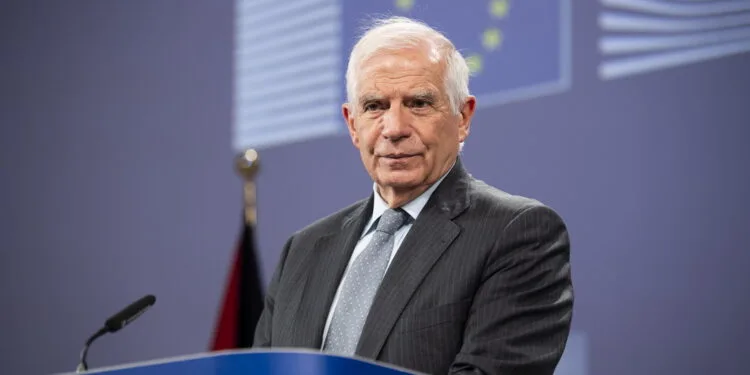Brussels – Like shrimp do, so does Tbilisi. Georgia seems to keep taking steps backwards on its path to EU membership, which has been effectively frozen for months because Brussels was concerned about the state of democracy, civil liberties, and the rule of law. Now, the latest addition to the list of problematic choices made by the Caucasian country is a law on family values that top EU officials say puts minorities at serious risk.
In a note on its site, the European External Action Service (EEAS) deplored the adoption by the Georgian Parliament of the legislative package on “family values and child protection”. The new regulations, approved by MPs in the second reading on Wednesday (Sept. 4), amend Article 30 of the Constitution by inserting a reference to several issues such as marriage, adoption, and fostering of children, medical interventions related to gender identity, gender recognition in documents, and the use of gender-related terms in official communications and the media. In essence, now Georgia recognises as a family—and protects as such—only the union of a man (“biologically male”) and a woman (“biologically female”).
The new law “undermines the fundamental rights of the Georgian population and risks further stigmatisation and discrimination against a section of the population,” reads the EEAS statement, which notes how “legislation with important repercussions on the path to EU integration has been approved without due public consultation and without a thorough analysis of its compliance with European and international standards.” The Service, which reports to the High Representative for Foreign and Security Policy Josep Borrell, stresses that “ensuring and upholding human rights is at the core of the enlargement process“, that “Georgia’s accession process is de facto halted,” and urges the authorities to recommit to the EU integration path.
With the adoption of the new legislation, therefore, the South Caucasus country moves even further away from the prospect of accession to the bloc of the Twenty-seven, lengthening the list of measures that are incompatible with European standards with regard, above all, to the maintenance of democracy and the rule of law. From the infamous law on “foreign agents”, which a few months ago had brought tens of thousands of protesters to the streets and prompted the European Council to judge Tbilisi’s path to EU membership as “de facto arrested,” to the prospect based on that same law and only envisaged for the moment, of banning opposition parties after the elections scheduled for next month: An abrupt setback to the now distant goal of becoming the first candidate state to join the Union by 2030.
English version by the Translation Service of Withub







